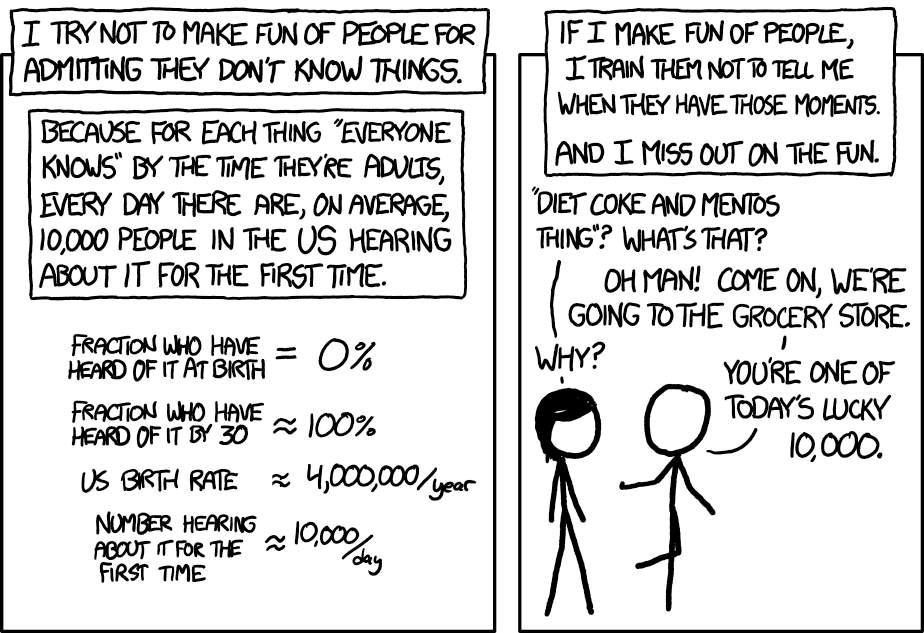this post was submitted on 12 May 2024
1036 points (98.1% liked)
Open Source
28963 readers
303 users here now
All about open source! Feel free to ask questions, and share news, and interesting stuff!
Useful Links
- Open Source Initiative
- Free Software Foundation
- Electronic Frontier Foundation
- Software Freedom Conservancy
- It's FOSS
- Android FOSS Apps Megathread
Rules
- Posts must be relevant to the open source ideology
- No NSFW content
- No hate speech, bigotry, etc
Related Communities
Community icon from opensource.org, but we are not affiliated with them.
founded 4 years ago
MODERATORS
you are viewing a single comment's thread
view the rest of the comments
view the rest of the comments

I think two assumptions to this whole 10k people/day metric cause it to be inaccurate pseudoscience:
It assumes people learn things at random times, causing the distribution to average over 30 years.
It assumes everyone learns a thing by age 30. If you talk to anyone over 80 years old I guarantee they'll tell you they don't know everything.
It's a sweet sentiment, but it bugs me how people keep quoting this like there's any truth behind it.
It isn't a science vs pseudoscience, it is using an easy to understand set of symbolic numbers and words that are meant to be taken together as a point. The point being that we are assholes if we don't stop to take a moment to see that we at some point were those same "10,000" and experienced shit for the first time. And that jumping on others for now being those "10,000" instead of sharing their excitement is dumb. Humans tend to like lessons and reminders that are clear to understand. We as a species have learned and taught via parables basically ever since we could speak.
Focusing on complicated but very precise data removes the whole point of the meaning being presented. Now if this were being understood to be a real study or some other situation where the numbers and science were the focus then it would very much matter. It is just a super basic lesson in social interactions presented in a nerdy way.